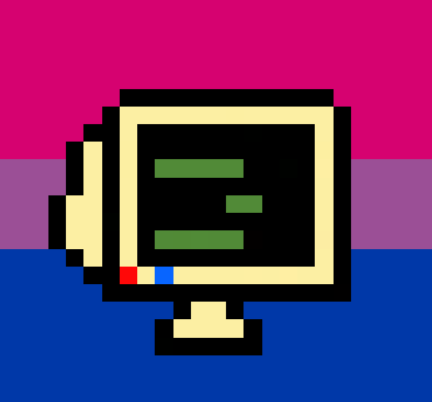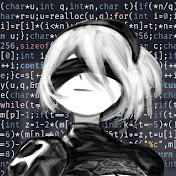I’m old. I don’t understand it.
Your computer is a bunch of parts that need software to make them work. The “operating system” handles talking to the hardware directly, while the programs you run only talk to the operating system. Talking to the operating system is easy, talking to the hardware is difficult, since you may need to speak a hundred different languages to work with every possible network card, sound card, graphics card, etc.
The operating systems you have probably heard of are windows and macOS. Linux is a 3rd one.
Windows is owned by Microsoft, macOS is owned by Apple, and Linux is developed by the community and (typically) released for free. Since anyone can work on Linux, there are tons of different versions of it floating around, that are all slightly different from one another.
4/10. No mention of TempleOS.
Nah, this is a really good explanation.
Dude may have been nuts, but he did do something quite impressive for his time.
TempleOS is not Linux!
Omg this us an amazing explanation thanks
Fun fact: Android is one of those Linux variants. It is, however, so highly modified, that we usually don’t really call it ‘Linux’ anymore. But the core components of Android are most certainly Linux components. So in a pedantic way, way more people directly use Linux than you would think.
Every desktop computer has an operating system. Most of them run Windows. Some run MacOS, this is why the software on Macs and other PCs is different.
Linux is another operating system, its free and anyone can see the code its written in.
Linux is popular with nerds and programmers since its easier to do some advanced stuff in. Its popular as an alternative to windows since Windows is progressively getting more annoying to use (updates, popups etc).
Linux is used by servers (computers that run websites, like lemmy), and other stuff like smart appliances.
The android Operating System (used by android phones, like Samsung phones) is based on linux.Is there a Best of Lemmy community? Cause this belongs there.
This is an amazing explanation, and you also managed to keep it relatively short.
Yes but you missed a lot of things of course.
Linux is free software, unlike MacOS or Windows. That means that the software is given users for free, and they can mostly also change it and redistribute it as their own.
This is why there are so many varieties of Linux Distributions, as the used software components are often the same, but they are released in different cadences, have different configurations and behaviors, or different focuses (for example Gaming, Server, Workstation, Lightweight, System rescue, hacking, anonymity).
Free software means that everyone can use it, how they want. Nobody needs to pay, but donations and contributions are crucial. While many big components like the core part “Linux” and others are developed and maintained by bigger corporations (which sell support or systems to mostly enterprise customers), a lot of the Linux software is fully done by people out of love, in their free time.
I appreciate the reminder about donations; just went to drop a little money on Mint as thanks to them!
Simplified explanation (shut up, Richard Stallman) : It’s an operating system. In the same way a PC (or any other computer) has Windows (or OsX, android, et. Al) being the connecting layer between the hardware and individual programs.
Linux can serve this role as well, and as it’s free and open source, it’s particularly popular among the tech and privacy enthusiasts here on Lemmy. Some use it for everything, some use it alongside windows (dualbooting), and some use it in a professional setting.
Linux is especially common on servers, but it’s also gaining a lot of ground in the desktop space as well. Since Linux is free to distribute, many have over the years made lots of nux distributions specifically tailored towards particular use cases.
Source: Linux user of 25ish years.
Tip: The Linux mint installer can boot into a fully fledged Linux without touching anything on your hard-drive, so if you want to check it out without installing, you can.
Okay, imagine your computer is like a big playground.
Linux is like a really cool, free, and super customizable manager for that playground.
- Manager (Operating System): Just like Windows or macOS, Linux is the main software that runs your computer, manages all its parts (like the screen, keyboard, and internet), and lets you run other programs (like a web browser or games).
- Free: Most of the time, Linux doesn’t cost any money to use.
- Customizable: Unlike some other managers that have strict rules for how the playground is set up, Linux lets you (or people who know how) change almost anything about how it looks and works. This is why there are many different “flavors” of Linux (called distributions or “distros” like Ubuntu or Mint), each with a slightly different setup.
In short: Linux is a free, open-source operating system that gives you a lot of control over your computer. Many phones (Android is based on Linux!), servers that run websites, and supercomputers use it because it’s powerful and flexible
Yes I use AI
Yes I use AI
No you don’t.
You used a large language model, which is a very fancy statistics based autocomplete algorithm, but has absolutely nothing whatsoever to do with artificial intelligence, other than by harming public opinion of it and sucking off all the funding that could be used on actual AI research.
Good luck convincing the general population. Better to just accept AGI is the new term for what you’re referring to.
It’s neither general nor intelligence.
You misunderstand me.
AGI doesn’t exist.
Of course it doesn’t, everyone is wasting time and money on LLMs instead of on proper AI research.
That’s not a reason to call them AI or AGI, though. On the contrary, it’s poisoning the term, because once the LLM bubble bursts no one will want to invest in AI research for decades, because they’ll associate it with LLMs. (Not to mention how hard it’ll be to research anything when all sources of information have been poisoned with LLM slop.)
imagine your computer is like a big playground
… goes on to do nothing with that analogy.
Yes I use AI
For this comment? Why?
Low effort question, get a low effort answer. Google do still exist. :)
I think you miss the point of this community
Just like Windows (95, Me,Vista,XP, 10, 11)OS and macOS (Mountain Lion, Yosemite, El Capita) there is a 3rd option. Linux! It’s free and available to anyone and is highly compatible with most if not all types of hardware. Like all things in life, there are caveats and ability to customize to your discretion. Do not be intimidated by the flavors that exist, such as Ubuntu, Mint, Arch and many many more! As an example there is steamOS used on the Steam Deck. This a a divergent version of another open source OS, that is compatible in using for mobile gaming. My verbiage is limited and very very broad and brief. The history of it all stems from one singularity, the kernel or the “brains” of the computer. All variants of operating systems stem from Unix. This is particularly due to use cases of specificity task, or goal of the program to accomplish.
You know how a lot of computers use windows? And a lot are macs? And there’s a difference between the way you have menus and apps and stuff? Linux is a third way to use your computer. But there’s a lot of versions of it. It doesn’t matter what kind of computer you put it on either. New, old, windows, Mac, mini computers, old laptops. Linux is simply another way to use your computer. It’s really cool if you’re into that kind of thing.
That sounds very clever
A computer has hardware (your hard drive, memory, screen, processor) and software (a web browser, Discord, apps, etc.). Your operating system is what manages your hardware and software, and provides a user interface for you to interact with. Microsoft Windows, IOS and Android are all types of operating systems. They allow you to run software, change your display settings, connect to the Internet and do anything else that your hardware and software allow.
Linux is an operating system, or more accurately, a collection of operating systems that are free and open source. This means that anyone can take the Linux kernel (the base of the operating system), and create their own distribution, or distro for short. There are dozens of Linux distros out there, each serving different users or different purposes. For this reason, Linux is used on a wide variety of devices. Android on smartphones and tablets, steam OS on gaming handhelds, and the software that powers most smart home appliances, these are all different types of Linux distros!
When you have a computer, you have hardware which is the box in front of you but on that box you can install different software. E.g. windows, macos or Linux.
Linux got its name from Linus Torvalds who was what I’ll say the architect and substantial worker of the kernel, ther very core of the operating system
The computer has a few layers. If you write a program, it may do something like let you read emails,but this program is at the top layer and when you do something like save a picture to your desktop, it tells the operating system that the email attachment is to be written to the disk.
Now the hard drive of the computer is managed but the operating system, and the operating system negotiates with the hard drive on where to actually store it on the hard drive.
In a sense the operating system is like a person you give a photo to and say file this away for later.
That person was there when you got the hard drive/filing cabinet and keeps track of what sin which draw and in which removable folders.
Later when you ask the operating system to show it again, it goes back to the filing cabinet and gets the picture without you or the email program having to know the nitty gritty of it was in the 2nd draw , nearly all the way up the back.
The operating system also does thing like operate a the WiFi a bit like a radio and schedules when tasks run on the computer.
Im stretching the analogy here but imaging an office where only one to four people work there. the operating system keeps track of all the things they need to do and make the system function well.
Microsoft made Dos (disc operating system) and windows. Apple made Macos , a long time ago on early mainframe computers there was Unix and Linux is an operating system originally made to replicate the look and feel of Unix.
But it’s build under an open source licence so you can download and see all the internals and change them if you want.
Android phones and tablets run Linux.
It’s versatile and can be adapted. I’ve got some 10 year old computers I’ve reconfigured as a server running Linux that wouldn’t be able to run modern windows operating systems.
I hope it helps.
There have been some great answers already but there are some things I’d like to add: all commercial operating systems (especially Windows and Chrome OS, but MacOS is not at all innocent in that regard) are becoming increasingly focused on data harvesting, advertising and controlling what the user can do with their computer. Linux doesn’t do any of that. Your computer is yours and nobody tries to control what you do with it. And if you use a beginner friendly distribution, it’s not really more difficult to use.
I would argue it’s easier to use than Windows at least, but it is different from Windows so moving from Windows to Linux can be challenging and you have to be willing to adapt. Package managers make the experience so much better for users though, and you don’t have to hunt down random executable online for installs or updates (usually). There’s also no mucking about with a thing like registries in Windows to make it work how you want, which you don’t have to do on Windows but to make it less annoying you do.
Free as in freedom!
Freedom to do whatever you want, however you want. Including brick your computer.
But honestly, modern distros are really smooth feeling. If you slapped Mint on just about any computer today it will run better and longer, and you’ll quickly find that it’s just as easy - if not easier - to use as Windows or MacOS.
Also its worth noting that MacOS and Linux share genetics that don’t really matter to 99% of users, but if you want your Linux to look and feel like a Mac, you can do that very very easily.
Also the KDE Plasma DE is super fun and I’m addicted to it now
I scrolled the comments and every single one is incorrect.
Linux is not an operating system. It is a kernel, which is an important component of an operating system. Operating systems that use the Linux kernel are often referred to as “Linux” for simplicity and brevity, though. It should be understood that when someone says “Linux” they typically are meaning “an operatjng system that uses the Linux kernel”.
Agree, but this is the ELI10 explanation, not the ELI5 explanation. ChromeOS and Android are both operating systems that look and act very different than an operating system like Debian or Fedora, but all four of these examples use the Linux kernel.
I don’t know… I think his description can be overly complex/abstract for eli5 AND all the other descriptions can be wrong.
Here’s my attempt:
You know how with Lego you can make all sorts of stuff, but you can also buy a kit with some main pieces pre-molded that you attach the other bits to, to make your object?
Linux is like that pre-made bit, with bumps on it in specific places to build the object. It’s designed to be the interface between the non-Lego objects and the Lego pieces.
But unlike in most systems, with Linux, everyone can tweak the pre-made bit, and it must be given away, along with the instructions on how to build it.
And of course, this all runs in software on electronics, not using physical objects made of plastic.
Like you’re 5… Ok.
Do you play videogames?
On the computer or on the TV?
Like Xbox? PlayStation?
Cool! Xbox and PlayStation are both “gaming consoles” and they are kinda not too different from a computer, but they’re computers just for videogames. Even like a phone, or a Nintendo switch is a computer.
All computers have operating systems. Think of this as what’s on the screen when the computer isn’t doing much other than being on. Like the desktop, the home screen. That’s kinda your operating system. It’s the command center where you can use your computers tools!
Here’s the deal. Linux? It’s an operating system.
PlayStation uses their own modified version of Linux.
Xbox doesn’t. They use a modified version of Windows (kinda).
Apple phones use a modified version of Apple computers operating system.
Android phones use a modified version of Linux.
the Operating system in your computer can be Linux, too! 🤓
Apple’s operating system is based on UNIX
Linus is an overly complicated and super buggy OS for PC. But for everything else that uses Linux it works fine.
Good for cars, phones, consoles, smart TVs etc. but bad for personal computers as you need a 10 year degree in coding just to install a dumbass program that will probably crash the whole computer anyways.
I hate Linux. I have tried dozens of versions for dozens of years and every distro is the same shit box as the next. I think the real problem is you’ll have a distro by a group of regular people and it sucks. Then you have a distro like steam OS where an actual company made it for one specific thing and it works fantasticly.
It’s a desktop operating system
It’s like Windows if it was made by people who care about making a good operating system instead of by a big corporation who only cares about milking the crap of its users for money by collecting their data and forcing unwanted features down their throats.
Linux is based on open source code, which means the inner workings of the system are free knowledge and is freely accessible. Any development team is free to use it as a base and modify it or build upon it as they please. There are different teams making their own version of Linux with different features. They are called distributions, or “distros” with different features that appeal to different users. Even individual Linux users will generally have far more control over their operating system than Windows users.
Linux used to be not very user friendly and only approachable by more technical savvy people. Now however, there are distributions out there that are simple and approachable for almost anyone willing to learn a little.
You can think of Linux as the underlying engine that runs your computer just like Windows 10/11 or MacOS.
Thankfully just like a car you don’t need to fully understand the intricacies in order a Linux desktop🤗












